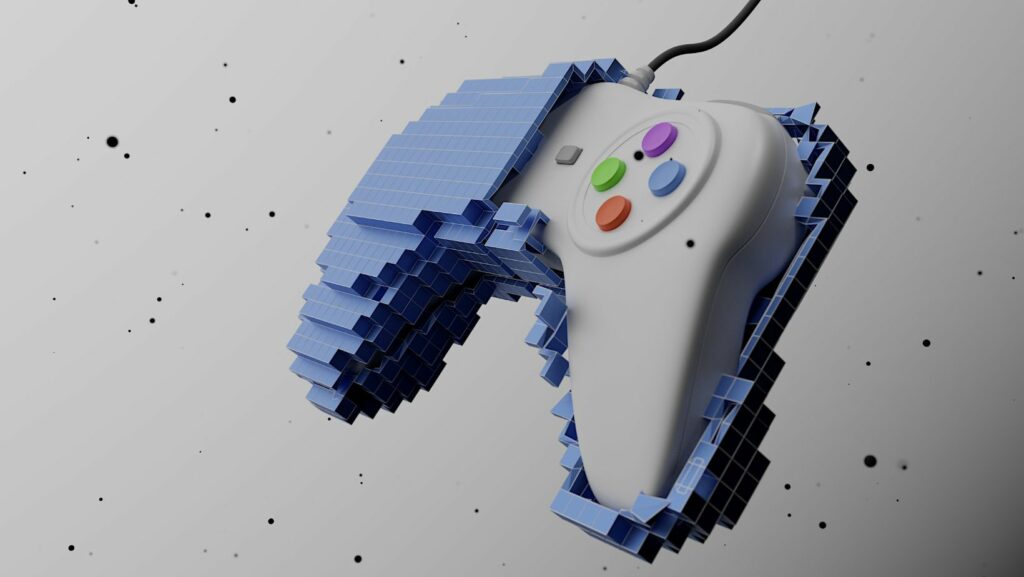Future Hardware Developments in Gaming
As I delve into the realm of future hardware development in gaming, it’s evident that technological advancements are shaping the landscape of interactive entertainment. The evolution of gaming hardware is a crucial aspect that directly impacts the overall gaming experience for enthusiasts worldwide. From enhanced graphics to smoother gameplay, each innovation plays a pivotal role in pushing the boundaries of what is possible in the virtual world.

One cannot ignore the influence of virtual reality (VR) and augmented reality (AR) technologies on the future of gaming hardware. These immersive experiences are revolutionizing how players interact with games, future hardware developments in gaming blurring the lines between reality and fiction. As developers continue to harness the potential of VR and AR, we can anticipate even more groundbreaking hardware solutions that cater to this growing trend.
Moreover, with cloud gaming gaining momentum, there is a shift towards streaming services that offer high-quality gameplay without hefty hardware requirements. This transition not only expands accessibility but also poses new challenges for traditional gaming hardware manufacturers to adapt and innovate. As I explore these emerging trends and possibilities, it becomes clear that staying at the forefront of technology is essential for both gamers and industry leaders alike as we venture into this exciting era of future hardware developments in gaming.
Overview of Current Gaming Hardware
Let’s delve into the realm of modern gaming hardware to understand the current landscape and pave the way for discussing future developments.

When it comes to processors, both AMD and Intel have been dominating the market with their powerful CPUs. The AMD Ryzen series has gained significant traction among gamers for its performance and affordability, challenging Intel’s long-standing reign in this domain.
Graphics cards play a vital role in delivering immersive gaming experiences. NVIDIA’s GeForce RTX series and AMD’s Radeon RX GPUs are at the forefront of graphics technology, offering ray tracing capabilities and high frame rates that push visual boundaries in games.
Memory and storage are crucial components for seamless gameplay. The shift towards faster DDR4 and DDR5 RAM modules has enhanced multitasking capabilities, while NVMe SSDs have revolutionized loading times, minimizing in-game delays and improving overall responsiveness.
In terms of peripherals, innovations such as mechanical keyboards with customizable RGB lighting, high-DPI gaming mice with programmable buttons, and ultra-wide curved monitors have enriched the gaming experience by providing greater precision, comfort, and immersion.
The convergence of cutting-edge hardware technologies has not only elevated gaming performance but also set the stage for future advancements that promise even more realistic graphics, faster load times, and smoother gameplay across a wide range of genres.
Key Trends Driving Future Hardware Developments in Gaming
As the gaming industry evolves, several key trends are shaping the future of hardware developments. Let’s delve into these influential factors:

- Advancements in Graphics Technology
With each passing year, graphic capabilities in games continue to push boundaries. Technologies like ray tracing and AI-powered graphics are becoming more prevalent, driving the need for powerful hardware components to support these features. - Rise of Virtual Reality (VR) and Augmented Reality (AR)
The increasing popularity of VR and AR experiences is spurring innovation in hardware development. From high-resolution displays to more responsive motion tracking sensors, manufacturers are focusing on enhancing immersive gameplay through cutting-edge technologies. - Demand for Real-time Ray Tracing
Real-time ray tracing has revolutionized visual fidelity in games, offering realistic lighting effects and reflections. This trend is steering hardware manufacturers towards optimizing GPUs and processors to meet the computational demands of this advanced rendering technique. - Cloud Gaming Services
The emergence of cloud gaming platforms is influencing hardware designs to accommodate streaming-intensive gameplay requirements. Low-latency connectivity and robust processing capabilities are crucial for delivering seamless gaming experiences over the cloud. - Integration of Artificial Intelligence (AI)
AI integration in gaming hardware is gaining traction, enabling smarter NPCs, dynamic environments, and personalized gaming experiences. As AI algorithms become more sophisticated, hardware developers are exploring ways to leverage AI for enhanced performance optimization.
These trends underscore the dynamic landscape of future hardware developments in gaming, signaling an era where technological innovation plays a central role in shaping the gaming experience. Stay tuned as I explore further insights into this exciting evolution!


